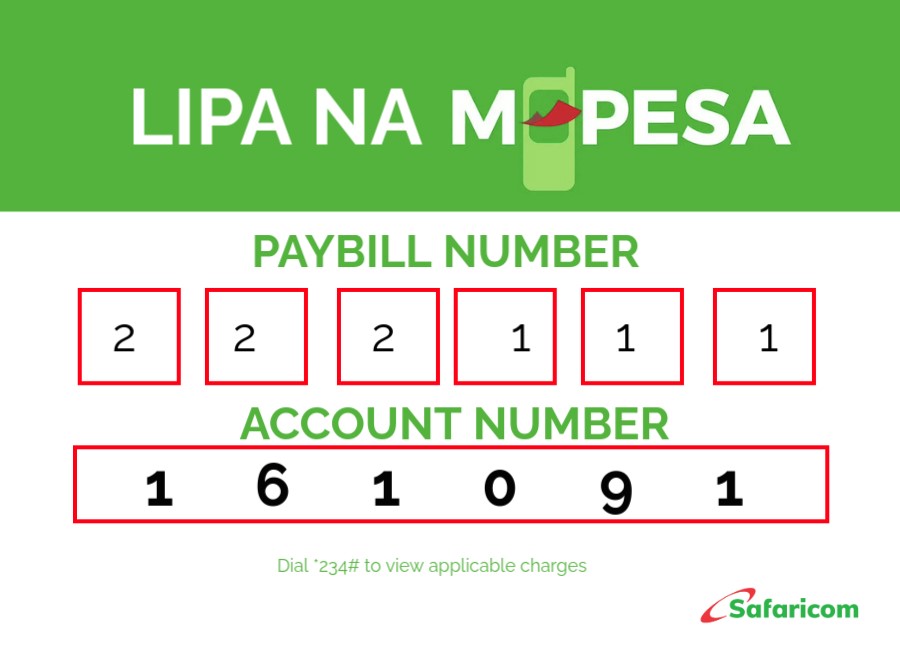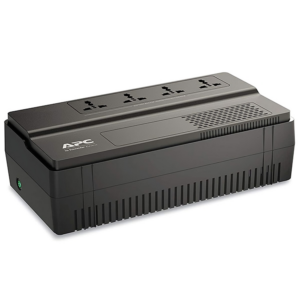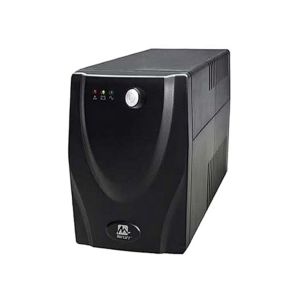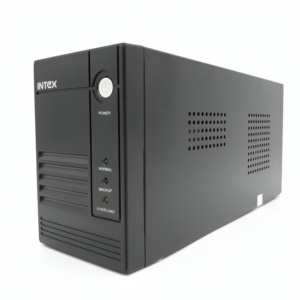No products in the cart.
UPS Battery 12V/7
Original price was: KSh 2,950.00.KSh 1,800.00Current price is: KSh 1,800.00.
In stock
- Voltage: 12V
- Capacity: 7Ah
- Type: Typically sealed lead-acid (SLA) or gel-cell, maintenance-free.
- Applications: Used for computers, networking equipment
- Charging Time: Takes about 8-12 hours to charge fully.
- Lifespan: Lasts 3-5 years with proper maintenance.
- Compact: Ideal for small UPS systems
- Safety: Leak-proof, vibration-resistant
UPS Battery 12V/7
A 12V 7Ah UPS battery is a type of sealed lead-acid (SLA) or gel-cell battery used in Uninterruptible Power Supply (UPS) systems to provide backup power in case of power outages or disruptions. The 12V denotes the battery’s nominal voltage, and 7Ah refers to its capacity (Ampere-hours), which defines how long the battery can supply power before it needs recharging.
This size of battery is typically used in smaller or compact UPS systems, suitable for powering personal computers, networking equipment, telecommunications devices, alarm systems, and various electronic systems that require reliable backup power during short-term power failures.
1. Basic Structure and Components
A 12V 7Ah UPS battery generally consists of the following components:
Battery Type:
- Sealed Lead-Acid (SLA) Battery: This is the most common type of UPS battery. It is maintenance-free and can operate in various orientations without the risk of electrolyte leakage.
- Gel-Cell Battery: This variation uses a gelled electrolyte instead of a liquid, which provides improved performance in high-vibration environments and reduces the risk of leakage. It’s especially useful for situations where safety and durability are critical.
- Lithium-Ion (Li-ion): In more modern UPS systems, Li-ion batteries are sometimes used, offering a longer lifespan and lighter weight but at a higher initial cost.
Internal Components:
- Lead Plates: Positive and negative lead plates are submerged in the electrolyte (either liquid or gel), which allows the chemical reaction to take place during both discharging and charging cycles.
- Separator: The separator keeps the positive and negative plates apart to prevent short circuits while allowing ion flow for energy storage and release.
- Electrolyte: In an SLA battery, the electrolyte is typically a diluted sulfuric acid solution that facilitates the energy flow. In gel-cell batteries, this is a thickened, gel-like substance to minimize leakage risk.
2. Capacity and Performance
- Voltage: The 12V voltage rating means the battery is designed to provide 12 volts of power to compatible devices and UPS systems. This is the standard voltage for smaller UPS units.
- Capacity (7Ah): The 7Ah (Ampere-hours) rating indicates the battery’s energy storage capacity. It can supply a current of 7 amperes for one hour or 1 ampere for 7 hours. The exact duration of backup power depends on the power consumption of the devices connected to the UPS.
- For instance, a 12V 7Ah battery can power:
- A small desktop computer for about 1-2 hours.
- A router and modem for several hours.
- Security systems or telecom equipment for extended periods, depending on the load.
- For instance, a 12V 7Ah battery can power:
3. Applications of UPS Battery 12V/7Ah
The 12V 7Ah UPS battery is widely used in various home, office, and industrial applications where a small, compact power backup is needed:
Home and Small Office Use:
- Computers: Provides power backup for desktop PCs, workstations, and network equipment during power cuts, preventing data loss and allowing safe shutdowns.
- Networking Equipment: Powers modems, routers, switches, and access points, ensuring uninterrupted internet connectivity.
Telecommunications:
- PBX Systems: Supplies backup power to telephone systems and telecommunication equipment, preventing downtime during power failures.
Security Systems:
- Alarm Systems: Powers intruder alarms, CCTV cameras, motion sensors, and other critical security devices during power outages, ensuring the system remains operational.
Medical Equipment:
- Provides backup power to small medical devices, such as oxygen concentrators or patient monitoring equipment, to ensure uninterrupted operation.
Industrial and Commercial Use:
- Point-of-sale (POS) Systems: Powers POS terminals and other business-critical equipment in small shops or offices during power failures.
- UPS for Small Machines: Used in industrial setups where a low-power UPS is sufficient to protect sensitive equipment from power interruptions.
4. Key Features and Benefits
- Compact and Efficient: The 12V 7Ah size is ideal for small, space-saving UPS systems, providing just the right amount of backup power for a variety of applications.
- Maintenance-Free: SLA and gel-cell versions are maintenance-free, meaning you don’t need to worry about refilling the electrolyte or other regular maintenance tasks. These batteries are designed to work efficiently without user intervention.
- Affordable: Compared to higher-capacity batteries or lithium-ion alternatives, the 12V 7Ah UPS battery is cost-effective while still offering reliable performance.
- Safety: SLA and gel-cell designs are safe with no leakage risks. They are built to be vibration-resistant (in the case of gel-cell batteries) and have built-in overcharge protection.
- Versatile Compatibility: The 12V 7Ah battery is compatible with a variety of small and medium UPS systems, making it easy to replace when needed.
- Reliability: Provides consistent backup power for a range of critical devices, ensuring they stay powered long enough to avoid data loss, hardware damage, or other risks during a power outage.
5. Charging and Lifespan
- Charging Time: The battery typically takes about 8-12 hours to fully charge when connected to a UPS system. The charging time can vary depending on the UPS model and the type of charger used.
- Lifespan: The average lifespan of a 12V 7Ah battery is 3-5 years under normal operating conditions. However, the lifespan can be influenced by:
- Temperature: Excessive heat or cold can shorten battery life.
- Charge Cycles: Deep discharges and frequent recharges can reduce lifespan. It’s ideal to keep the battery in a partially charged state to maximize longevity.
- Maintenance: While the battery is maintenance-free, periodic inspections and ensuring that the battery is not overcharged or discharged too deeply can help optimize its performance.
6. Installation and Usage
- Easy Installation: The 12V 7Ah battery is typically easy to install in UPS systems. It connects via simple DC terminals, and most UPS devices will automatically charge the battery once connected to the mains power.
- Battery Replacement: When the battery is near the end of its lifespan, the UPS will often alert the user. Replacement is straightforward, as the battery is a standard, off-the-shelf size used by many UPS models.
7. Environmental Considerations
- Recycling: Like other lead-acid batteries, a 12V 7Ah UPS battery must be disposed of responsibly due to the presence of lead and sulfuric acid. It is crucial to recycle these batteries through certified recycling programs to prevent environmental harm.
- RoHS Compliance: Many modern 12V 7Ah batteries are RoHS-compliant, meaning they do not contain harmful materials like lead, mercury, or cadmium, making them safer for the environment when properly disposed of.
The 12V 7Ah UPS battery is an affordable, reliable, and compact solution for providing backup power to a range of devices, including computers, networking equipment, security systems, and telecom devices. It is especially well-suited for small UPS systems used in home or office settings, offering enough backup power to safely shut down critical devices during power outages. With proper care, it can last several years and provide uninterrupted power to ensure that your devices remain operational when needed most.












Reviews
There are no reviews yet.